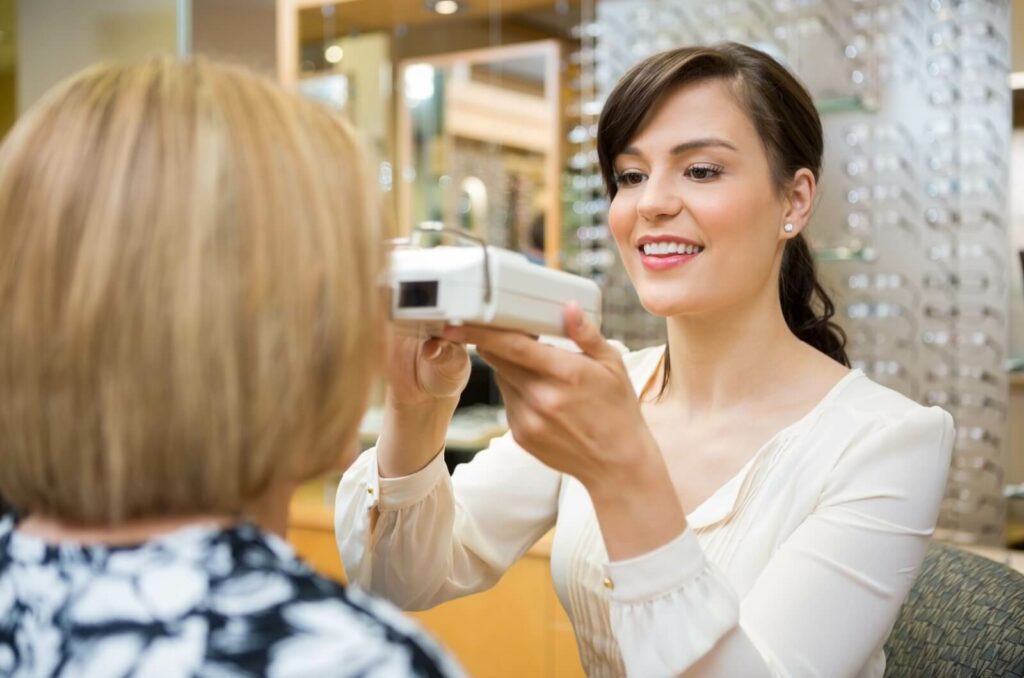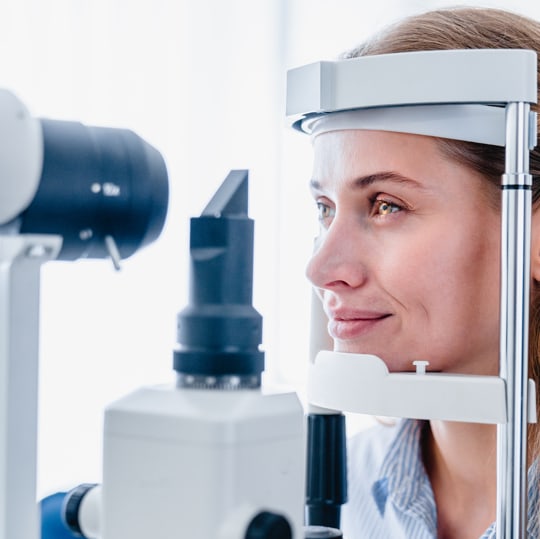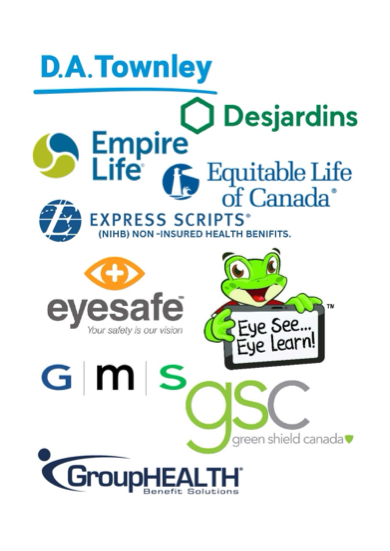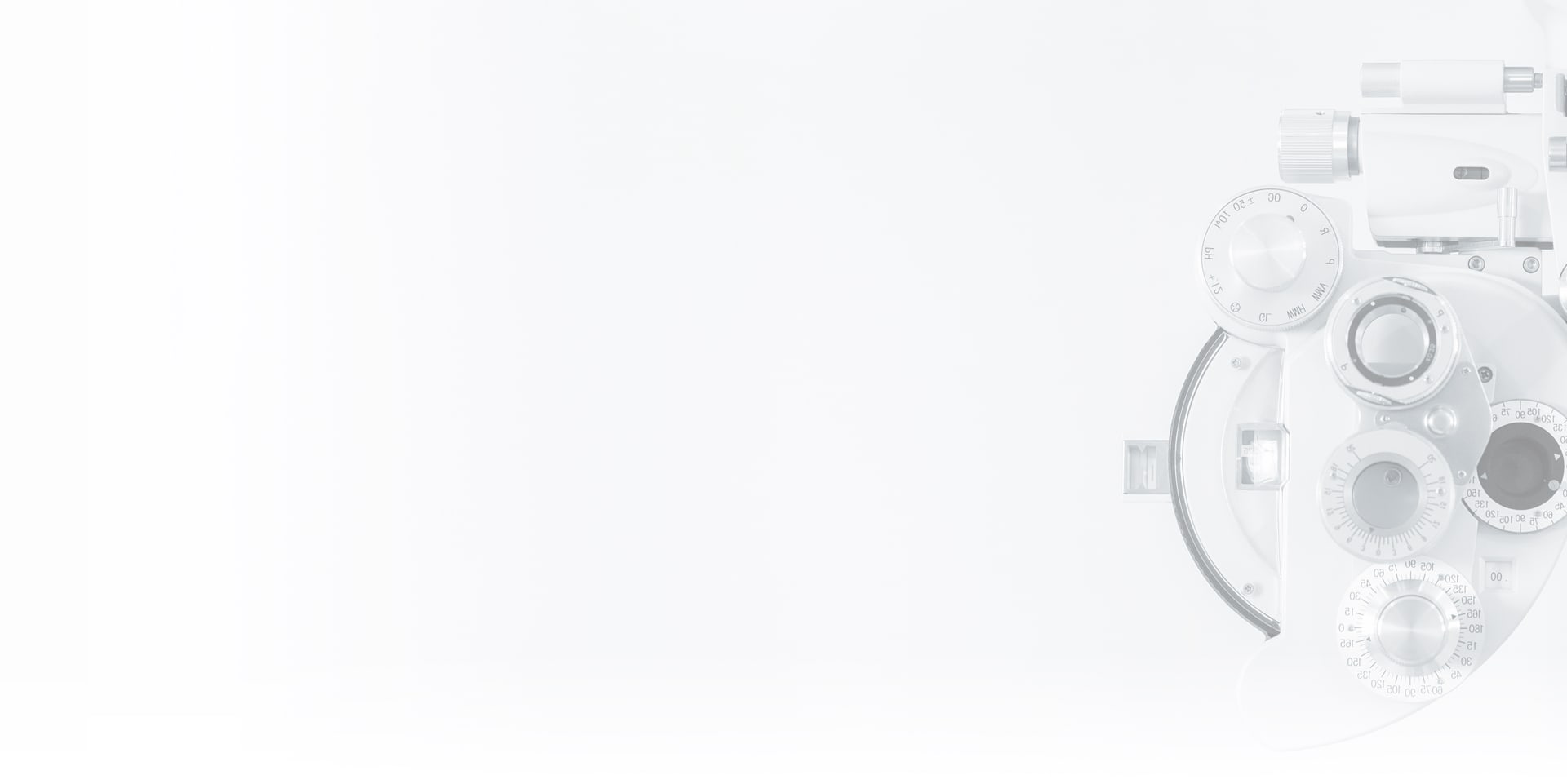Adjusting to a new pair of glasses takes time. However, if you’ve continuously experienced distorted vision and discomfort while wearing your glasses, this doesn’t necessarily mean there’s an error with the vision prescription. One area of optical care that people may overlook is their pupillary distance.
The pupillary distance (PD) is a measurement taken by your optical team after your routine eye exam. It measures the distance between the centers of your pupils in each eye, confirming that the lenses in your glasses will align correctly with your eye’s focal point.
Understanding Pupillary Distance
Pupillary Distance (PD) is the distance between the centers of your pupils in each eye.
It may not sound like much, but this measurement is necessary for comfortable glasses that offer good visual clarity. An accurate PD measurement ensures that the lenses in your glasses are correctly aligned with your eye’s focal points.
An incorrect PD measurement can throw your vision off balance. Even if your glasses are manufactured correctly in the lab, a mismeasured PD can result in eye strain, headaches, and blurry vision. It can even cause people to believe that their vision prescription isn’t right.
Imagine looking through a telescope that’s slightly off-center—that’s how your eyes can feel if you’re wearing glasses designed for the wrong PD . Properly measured PD helps you see clearly and comfortably, making it a vital aspect of your eyewear prescription.
How is PD Measured?
PD is measured in millimeters using a pupillometer, an instrument that resembles a pair of binoculars.
Unlike traditional methods that involve manual measuring techniques, a pupilometer utilizes digital technology to provide accuracy and consistency in PD measurements.
After your routine eye exam, and once you’ve selected your desired frames and lenses, this measurement is taken by your optometrist or optician.
The pupilometer works by capturing the position of the pupils. When you sit in front of the device, it projects a series of lights and captures your eye’s movement as you look straight ahead. The device then calculates the exact distance between the centers of your pupils, providing PD values for both your right and left eye.
Traditional methods work just as well, but this digital method takes the measurement quickly while simultaneously reducing the chance of human error.

Why Don’t I See the PD Measurement on my Vision Prescription?
You may be wondering why, if PD values are necessary for providing visual clarity and comfort, they’re not included in your prescription.
This is primarily due to how eye examinations and eyewear prescriptions are structured. Your eye exam is conducted by your optometrist, who is responsible for monitoring your ocular health and assessing your vision. The values in your finalized vision prescription include sphere, cylinder, and axis, which are necessary for dispensing the appropriate lenses for your eyeglasses.
Opticians are responsible for interpreting prescriptions and confirming that the correct lenses are crafted and fitted for each individual.
Because a PD value is related to the fit of your glasses, it’s measured after you’ve chosen glasses rather than during the eye exam. Plus, the PD is measured in the context of the specific frames you’ve chosen. Since the style and size of the frame vary, so too can the increments of the PD measurement.
Can I Measure my PD at Home?
You might be tempted to measure your PD at home using a ruler, but this method is not always reliable due to inexperience and human error.
While it can give you a ballpark figure, a PD is measured in millimeters, meaning that minor errors can lead to significant vision issues.
When measuring PD at home, several factors can introduce errors. For instance, achieving the correct alignment and maintaining a straight gaze can be challenging without professional assistance. Additionally, self-measurements often lack the precision afforded by tools like a pupilometer, leading to improper lens placement.
If the optical centers of the lenses don’t align with your pupils, this can lead to distorted vision and discomfort. Such a misalignment can hinder the glasses’ ability to properly correct vision, resulting in blurred vision and increased visual fatigue, and thereby creating an overall uncomfortable visual experience.
Benefits of Buying Eyeglasses from Your Optometrist
Highlighting the significance of obtaining an accurate PD measurement emphasizes the benefits of purchasing your eyeglasses from your optometrist.
The convenience, affordability, and leisure of buying glasses directly online is appealing, but can greatly compromise your visual clarity.
Inaccurate PD measurements, poor frame fitting, and subpar lens quality are common issues. When you buy glasses online, you miss out on the personalized care and professional expertise that optometrists and opticians provide. This lack of professional input can lead to discomfort and a less-than-ideal visual experience.
The personalized care experience when you work with your optometrist and optician when purchasing glasses works to your benefit.
For one, the selection of frames offered by the optical boutique allows you to try on a variety of frame selections. The in-house experience can include bringing your friends and family to help you decide which frames best match your desired look and lifestyle. Plus, you can make a fun day out of it!
The primary benefit of purchasing your glasses in person is the expert advice and fitting provided by your eye care team.
We work to make sure that your PD value is measured accurately, that your frames fit comfortably, and that your lenses are of good quality. We continue to offer follow-up care, including adjustments and repairs, to provide long-term satisfaction and contribute to your overall eye care experience.
Stop by for a Visit!
Understanding the importance of pupillary distance is a necessary component of having glasses that offer comfortable vision correction. While you can try to measure your PD at home, you’re likely to run into obstacles that will impact your vision.
When you buy glasses from your eye care provider, you’re continuing to support a local business and community. Connect with our team at Eyesis Eyecare to browse our selection of frames!






































